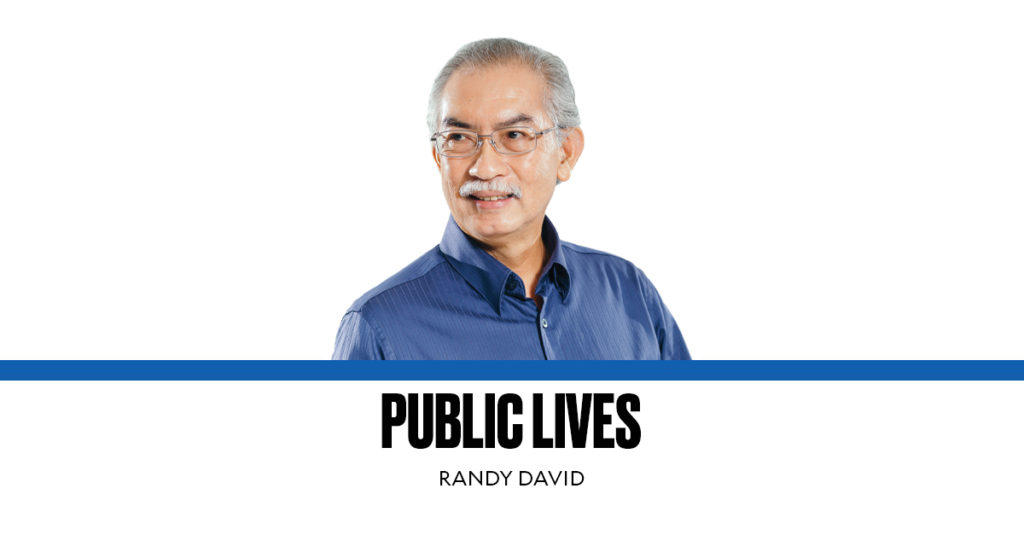In the eye of the COVID-19 pandemic
This Monday, President Duterte is expected to announce adjustments in the government’s response to the COVID-19 pandemic. In the absence of a unified and coherent official communication system, it has been difficult to comprehend the logic of this response. We are drowning in an alphabet soup of assorted abbreviations whose precise meanings remain unclear. The President himself has been a big contributory factor to this confusion.
Amid this muddle, we have learned to take our cues from the words that come before “community quarantine” (CQ)—“general” (G), “modified” (M), or “enhanced” (E), or a combination of these letters. But, hardly anyone questions the reason for continuing any form of community quarantine. It is either we have grown accustomed to being locked down, or the term has simply lost its meaning from overuse.
The President will likely be announcing the National Capital Region’s return to MGCQ or GCQ. Whatever that means exactly is not as important as what it signifies to the public—a considerable easing in the flow of people, goods, and vehicles. It means less checkpoints, more humane treatment of quarantine violators, more available public transport, etc.
Since there is no way this anticipated relaxation may be justified in terms of an improved public health outlook (new infections have risen to alarming levels in the past three weeks), reasons will have to be found elsewhere.
We can expect Mr. Duterte to just declare in his usual cavalier way that we have no choice but to bite the bullet. That we can no longer afford to keep the economy closed. That government has run out of money to feed millions of immobilized families. That people need to go out to earn a living. That businesses are hurting. And that, until the vaccine arrives, we just have to find a way to survive the virus.
For better or worse, that’s looking at the situation from the standpoint of political boldness. Those in charge of the people’s health cannot afford to talk like that. Their specific mandate requires them to keep their focus on the progression of the disease, on the need to understand the dynamics of its spread, and how best to contain it. While hoping for the best, they must prepare for the worst by ensuring that the existing health system is not overwhelmed.
It is to these responsible professionals that we turn for candid assessments of where we stand with regard to the pandemic. Theirs is not an easy job. The closer they are to the political officials who determine the policy response, the more they tend to offer rationalizations for the specific directions taken by government.
They should take the utmost care to preserve their autonomy from the public officials who craft policy. More importantly, they must not tire of giving explanations to the public for the changes in the way they track the disease and interpret the data concerning its progression.
A case in point is the way public attention is methodically being shifted to the number of “recovered” (or presumed recovered) patients, at a time when the new infections recorded per day in the past couple of weeks have been the highest we have seen so far. We need plausible accounts of how this sudden rise in numbers has come about. These cannot simply be explained away as the pure result of widespread testing.
I believe it invites more public skepticism to claim so many recoveries in a given day or week in the absence of any honest-to-goodness system of monitoring and reporting of the health status of every person who tests positive for the virus. Such data can only be furnished by an organized contact tracing system, of which we have none in place.
The renewed focus on the “clustering” of infections is most certainly welcome, even as I suspect it to be no more than a rationalization for the emerging major shift to “granular” or local neighborhood lockdowns. But, again, such information can only come from robust testing and reliable contact tracing. Without these, it makes little sense to shut down an entire barangay just because two or three residents tested positive for the virus. One has to know more or less the probable source of these infections.
At last Friday’s briefing, Health Undersecretary Maria Rosario Vergeire announced that the country’s experts will no longer be looking simply at the COVID-19 tally of cases and its doubling time—as these were “no longer sensitive, especially as the trend of cases continues to rise.” Instead, apart from the clustering of cases, greater attention would henceforth be paid to weekly trends “plus the critical care utilization.”
I marvel at Undersecretary Vergeire’s careful description and meticulous choice of words. Despite their precision, they offer no glimpse of the nightmarish scenarios that must haunt our health officials and experts in their sleep. In the face of these rising numbers, I can only imagine that what deeply troubles them is the extremely limited capacity of our health facilities. It won’t take very long before there would not be a single vacant bed left at any of our hospitals’ intensive care units. That stark reality must not be masked with technical language.
The public needs to know the full magnitude of the threat that is upon us. After circling us for more than five months, this pandemic is clearly just beginning to hit us. We need a President who can offer a plan that gives the nation reason to hope. But we need the experts to tell us the real score.
—————
Disclaimer: The comments uploaded on this site do not necessarily represent or reflect the views of management and owner of Cebudailynews. We reserve the right to exclude comments that we deem to be inconsistent with our editorial standards.

